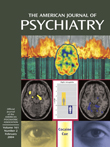γ-Hydroxybutyrate Dependence With Social Phobia
Mr. A was a 24-year-old highly educated European man who became psychiatrically ill with symptoms of social phobia at age 15 without having any other psychiatric disorder, according to DSM-IV. Because of his symptoms, he feared and avoided a variety of social and performance duties required during his university studies. During a practical course in China 4 years before, he followed the advice of a French physician and self-administered GHB, finally in a dose of 20 g/day.GHB was obtained by means of the Internet and applied every 90–120 minutes. According to Mr. A, his symptoms of social phobia completely vanished under GHB treatment. However, sleep disturbances appeared, and finally, a single sleep period did not exceed 4 hours. Two hours after each drug administration, he experienced withdrawal symptoms, such as agitation, insomnia, sweating, trembling, tachycardia, and overheating. Six attempts at self-managed abstinence were unsuccessful. Finally, he applied to our institute and was admitted to the ward. GHB withdrawal with transient administration of diazepam (up to 40 mg/day) was successfully accomplished without complications. We started treatment with paroxetine and cognitive behavior therapy. We applied the Liebowitz Social Anxiety Scale before and after withdrawal and observed 70% less total social anxiety than during GHB intake. This is well above the 39.1% mean reduction in score after paroxetine treatment, as reported by Stein et al. (3).
References
Information & Authors
Information
Published In
History
Authors
Metrics & Citations
Metrics
Citations
Export Citations
If you have the appropriate software installed, you can download article citation data to the citation manager of your choice. Simply select your manager software from the list below and click Download.
For more information or tips please see 'Downloading to a citation manager' in the Help menu.
View Options
View options
PDF/EPUB
View PDF/EPUBGet Access
Login options
Already a subscriber? Access your subscription through your login credentials or your institution for full access to this article.
Personal login Institutional Login Open Athens loginNot a subscriber?
PsychiatryOnline subscription options offer access to the DSM-5-TR® library, books, journals, CME, and patient resources. This all-in-one virtual library provides psychiatrists and mental health professionals with key resources for diagnosis, treatment, research, and professional development.
Need more help? PsychiatryOnline Customer Service may be reached by emailing [email protected] or by calling 800-368-5777 (in the U.S.) or 703-907-7322 (outside the U.S.).

